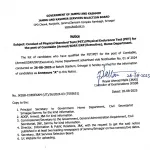What is literature? What are its tags or insignias of identification? These questions are often mooted about literature and its artistic merit. Defining literature is a somewhat hopeless and vexing endeavor, for it is so many things at a time, and because of this, it defies definition. Roland Barthes, a renowned critic, is right when he says, “Literature is a question minus the answer”. We cannot limit the significance and beauty of literature by imprisoning it in single-sentence definitions and fancy phrases. Literature defines itself when we read it. This is the beauty of it. It is one of the entertaining products of human imagination. Being the product of human imagination, it always takes readers to a never-never land. It is a domain of utopia and fantasy. In this regard, it is germane to quote Hellen Keller who says, “Literature is my utopia. Here I am not disenfranchised.”
Literature is an inclusive term. It is not limited to written form only. It is beyond that as well. It can be defined as any written, painted or oral text that is open to multiple interpretations and is addressed by aesthetic plaisir, artistic merit, universal relevance; and didactic intent. Music and painting are also included in the category of literature. The oral tales and folklore also come under the ambit of literature and that is why the Ugandan scholar Pio Zirimu has coined the term ‘orature’.
The works of literature have always been strongly tinged with two dominant characteristics to wit: everlasting pleasure and universal relevance. Literature, as we know, is of varied genres like poetry, drama novel, etc. The genre of poetry is usually taken as the crown of literature. Poetry enthuses and enthralls us due to its metaphorical language and imaginary expanse. The genre of drama entertains and educates us with its character delineation, dramaturgy, and complex stage procedures. Likewise, the genre of the novel pleases through its narrative technique and plot sequence. It keeps readers pinned because of its pleasing storyline and all that. Having said this, it is pertinent to quote the Latin poet, Ovid who says that the mission of any genre of literature is ‘docere delictendo’ which translates into English as to ‘teach and delight.’ Any form of literature is both aesthetic and didactic in nature, that is why we have ‘art for art’s sake’ and ‘art for life’s sake’. Literature is undoubtedly a blend of aesthetic pleasure and enlightenment. It is one of the charismatic and delightful legacies of human civilization.
Literature of every language and nation is distinctly and exceptionally reflective, pleasing, and long-lasting. The literary works written by literary big-wigs of different nationalities and languages like Dante, Homer, Geoffrey Chaucer, Spencer, Shakespeare, Tolstoy, Ghalib, Rumi, Firdausi, Saadi, Jaami, Goethe, and others are still pristine and are read with a renewed enthusiasm, fervor, and relevance. Their works are still relevant and entertain and educate us with the same intensity with which they used to amuse and entertain the readers of the bygone times. Chaucer’s ‘Canterbury Tales’, Spencer’s ‘Faery Queen’, Homer’s ‘Illaid’, Shakespeare’s ‘Hamlet’, Marlow’s ‘Dr. Faustus’ etc. although the writings of yore, are still fresh and firm in providing pleasure and intellectual sagacity to the present-day readers. Because of its freshness and novelty, Ezra Pound, the American literary figure, says that literature is news that stays news.
Undoubtedly literature is always news. It never gets stale nor loses its relevance. Literature has an inherent tendency to remain fresh and entertaining forever. Every literary work takes a new birth in the hands of readers of different ages. In a sentence, we can say that any literary work is not of age but of all ages. The message and theme of literary works transcend time, place, and period. It never loses its reader-pleasing appeal. Literature has an inherent oomph to depict life in the words of truth and beauty. Literature is of different categories. It may be the literature of entertainment or the literature of propaganda. But both kinds of kinds of literature always contain “mesmerism and message.” This “mesmerism and message” of literature are the result of literary language and social context or what the French critic Hippolyte Taine calls ‘milieu.’ In finis, it can be said that literature is ever-entertaining, everlasting, and ever-enlightening.
Postscript: Literature is one of the most interesting and significant expressions of humanity. P.T Barnun
(The author is a Lecturer (English) in SED (J&K). He has qualified UGC-NET and JKSET in English and has done Ph.D and M.Phil from AMU. His book of poems ‘Sounds of Silence’ will be published in 2024 by Blue Rose Publishers. He can be mailed at: [email protected])





